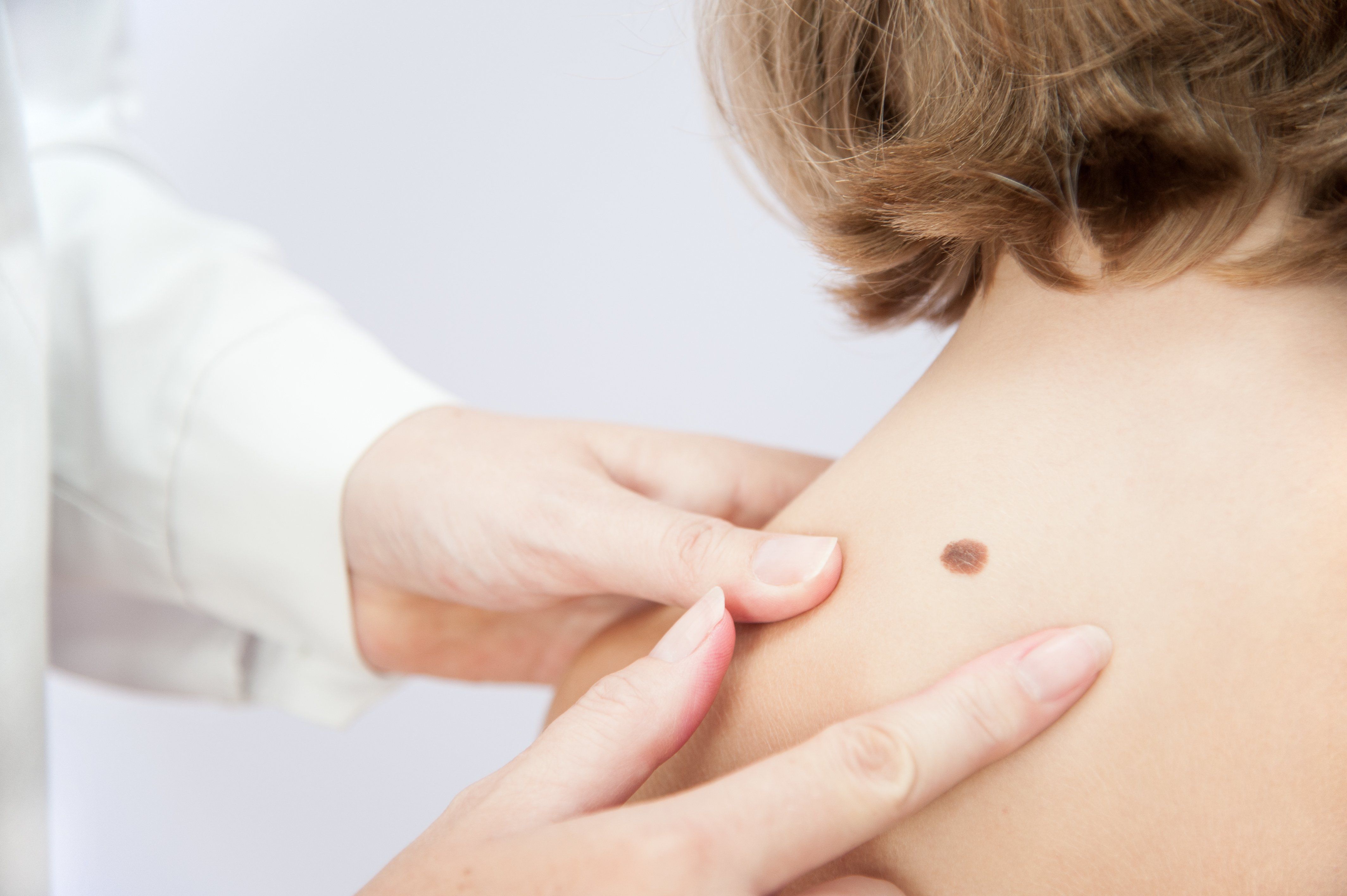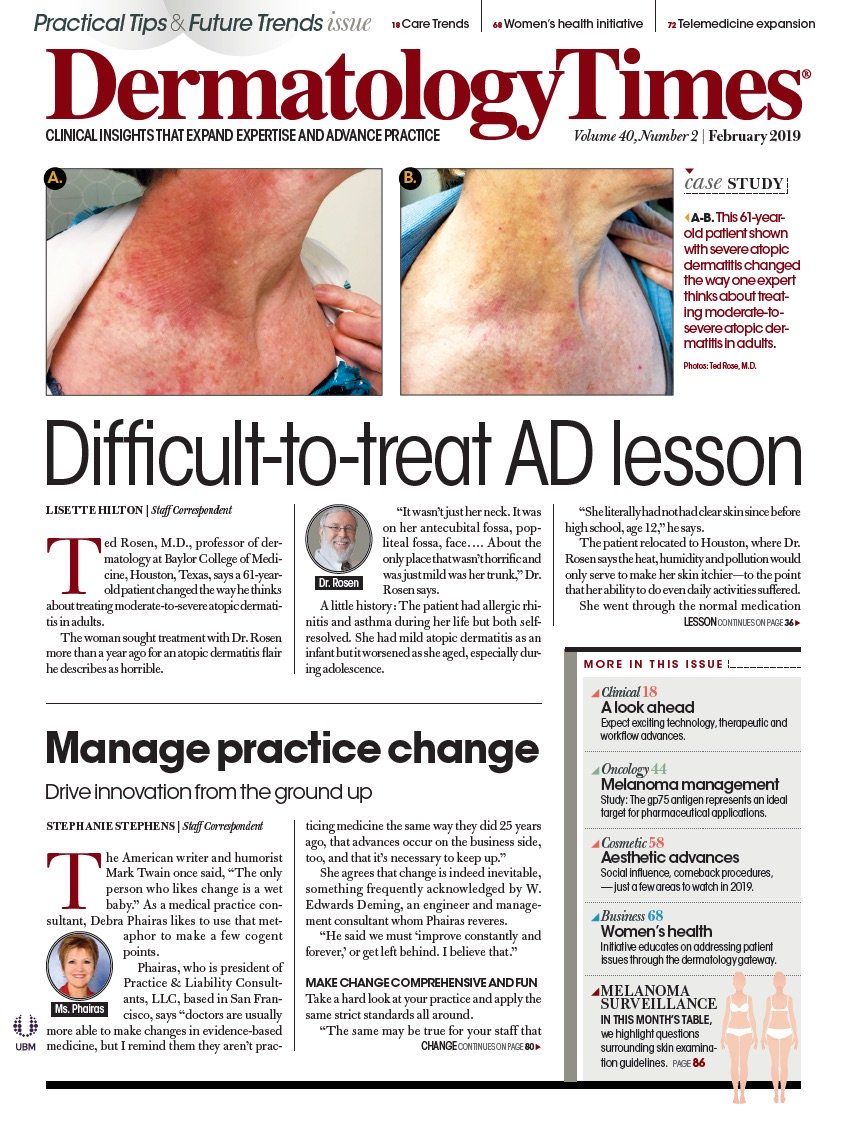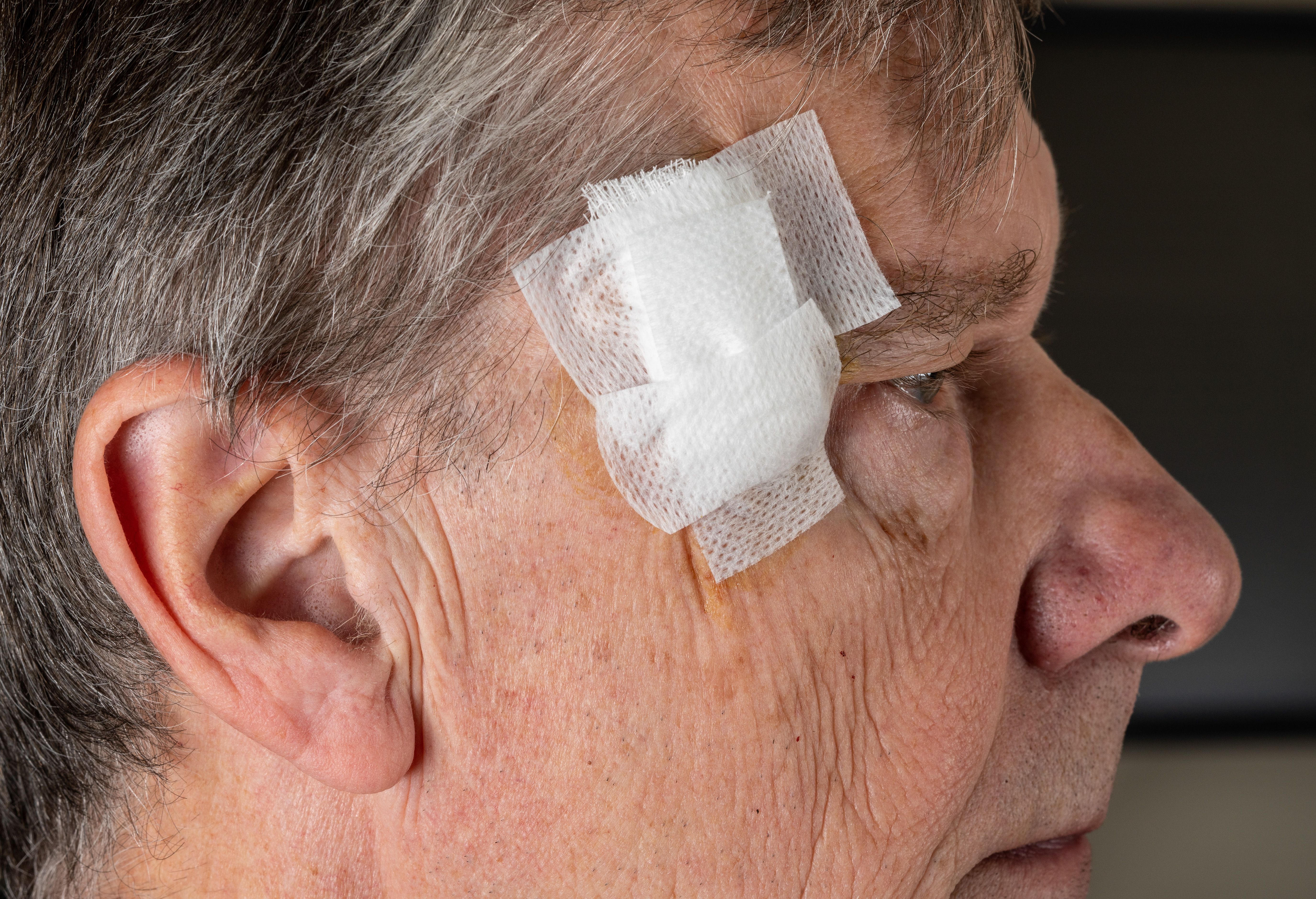- Case-Based Roundtable
- General Dermatology
- Eczema
- Chronic Hand Eczema
- Alopecia
- Aesthetics
- Vitiligo
- COVID-19
- Actinic Keratosis
- Precision Medicine and Biologics
- Rare Disease
- Wound Care
- Rosacea
- Psoriasis
- Psoriatic Arthritis
- Atopic Dermatitis
- Melasma
- NP and PA
- Skin Cancer
- Hidradenitis Suppurativa
- Drug Watch
- Pigmentary Disorders
- Acne
- Pediatric Dermatology
- Practice Management
- Prurigo Nodularis
- Buy-and-Bill
Publication
Article
Dermatology Times
Fat intake linked to skin cancer risk
Author(s):
A recent study investigating the association between dietary fat intake and the development of skin cancers found polyunsaturated fat intake especially omega-6 fat to be modestly and consistently associated with skin cancer risk.
A recent study investigating the association between dietary fat intake and the development of skin cancers found polyunsaturated fat intake especially omega-6 fat to be modestly and consistently associated with skin cancer risk. (Damian Gretka - stock.adobe.com)

The association between dietary fat intake and the development of certain types of cancers including colorectal, breast, and prostate has been well established. The results of a recent study1 investigating the association between dietary fat intake and the development of skin cancers were mixed but found polyunsaturated fat intake especially omega-6 fat to be modestly and consistently associated with skin cancer risk.
“As there have been few epidemiologic studies of fat intake and skin cancer, our findings on specific types of fat intake and skin cancer need to be replicated in other populations before we advise patients based on their fat intake. Until we get more data from other populations, people should follow well-established prevention guidelines for skin cancer such as reducing sun exposure,” said Eunyoung Cho, MD, department of dermatology, Warren Alpert Medical School of Brown University, Providence, RI.
In the prospective study, Dr. Cho and fellow researchers investigated the potential association between dietary fat intake and the risk of skin cancer including cutaneous malignant melanoma, squamous cell carcinoma (SCC), and basal cell carcinoma (BCC) evaluating the combined data from the Nurses’ Health Study (NHS 1984-2012) and the Health Professionals Follow-up Study (HPFS 1986-2012), two prospective studies in which the dietary information regarding the consumption of total and types of fat including saturated, monounsaturated, polyunsaturated, omega-6, and omega-3 fat and cholesterol was regularly assessed and recorded approximately every 4 years. Incident cases were identified by self-report.
A total of 794 melanoma, 2,223 SCC, and 17,556 BCC cases, and 736 melanoma, 1,756 SCC, and 13,092 BCC cases were found in the NHS and HPFS studies, respectively. No association between total fat intake and risk of skin cancer was identified in the two prospective studies. Data showed that the risk for developing SCC and BCC was associated with a higher intake of polyunsaturated fats. While the risks of SCC, BCC, and melanoma were associated with a higher omega-6 fat intake, omega-3 dietary fat intake was found to be associated with risk of BCC but not with SCC or melanoma. No other fats were associated with melanoma risk.
Interestingly, higher cholesterol and monounsaturated fat intake was associated with lower risk or SCC and BCC, respectively. The associations on the whole were also found to be similar in women and men and by other skin cancer risk factors.
Animal studies2,3 have shown the tumor promoting effects of omega-6 fat on UVR-induced carcinogenesis. According to Dr. Cho, one theoretical biological mechanism is that omega-6 fat intake may increase pro-inflammatory and immunosuppressive prostaglandin E synthase type 2 levels, which is associated with aggressive growth patterns of non-melanoma skin cancer (NMSC).
“Our study suggests potential effect of diet on skin cancer development, which needs to be further explored in other populations. Avoiding sun exposure is still the best strategy to prevent skin cancer,” Dr. Cho said. Â
Disclosures:Dr. Cho reports no relevant disclosures.
References:
1 Park MK, Li WQ, Qureshi AA, Cho, E. Fat intake and risk of skin cancer in u.s. adults. Cancer Epidemiol Biomarkers Prev. 2018 Jul;27(7):776-782. doi: 10.1158/1055-9965.EPI-17-0762. Epub 2018 Apr 10.
2 Black HS, Rhodes LE. Potential benefits of omega-3 fatty acids in non-melanoma skin cancer. J Clin Med. 2016 Feb 4;5(2). pii: E23. doi: 10.3390/jcm5020023.
3 Black HS, Rhodes LE. The potential of omega-3 fatty acids in the prevention of non-melanoma skin cancer. Cancer Detect Prev. 2006;30(3):224-32.






